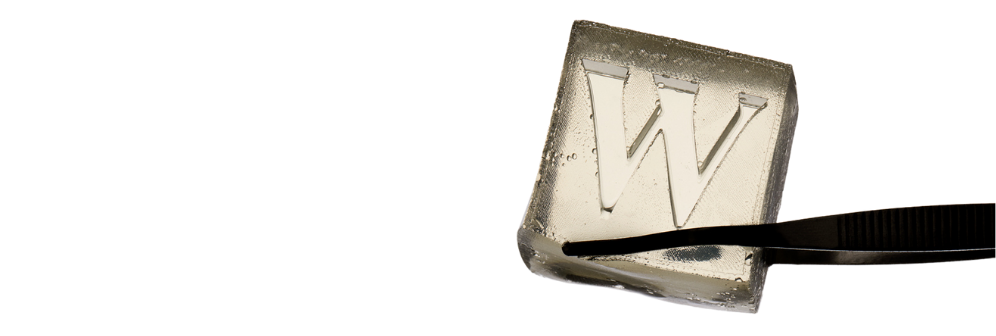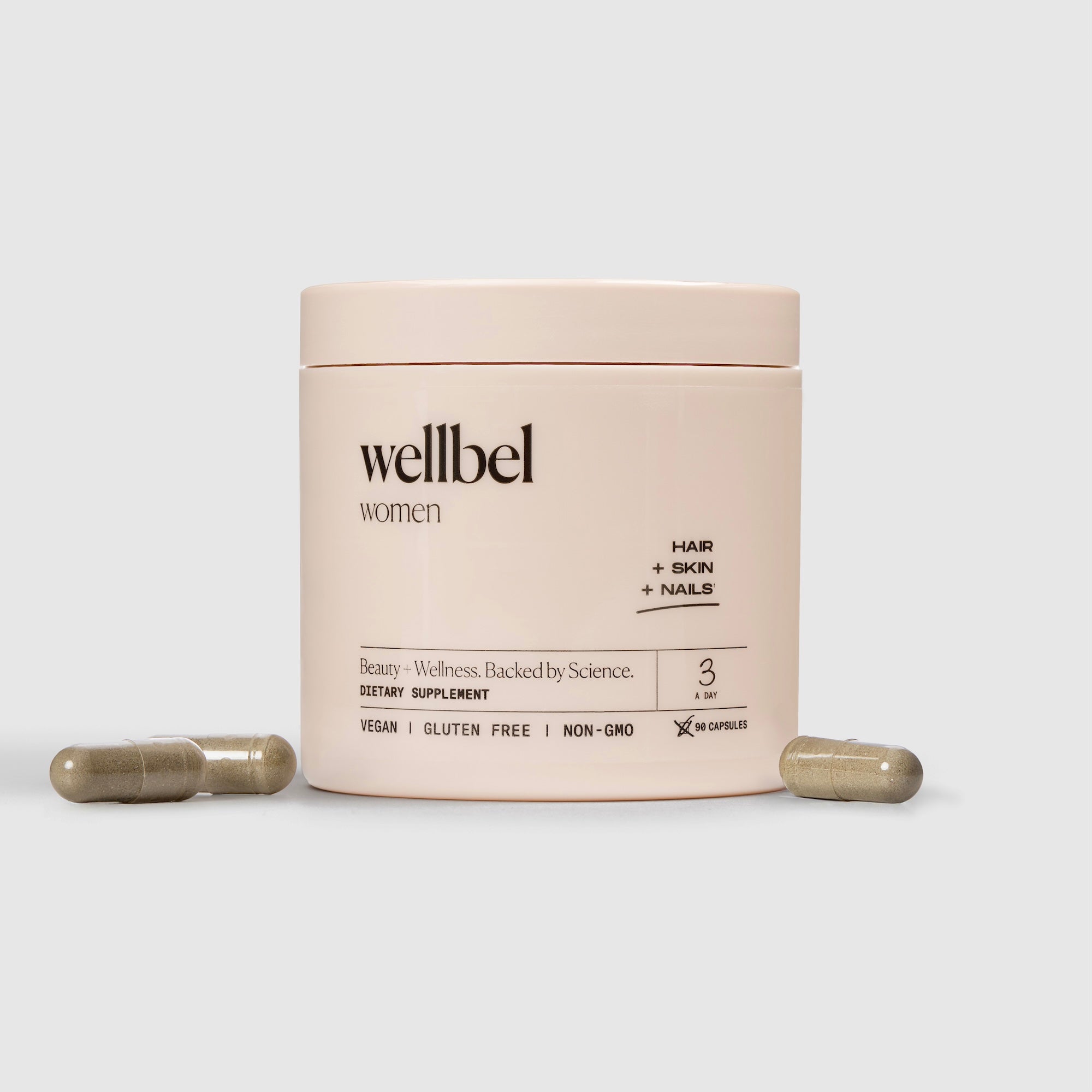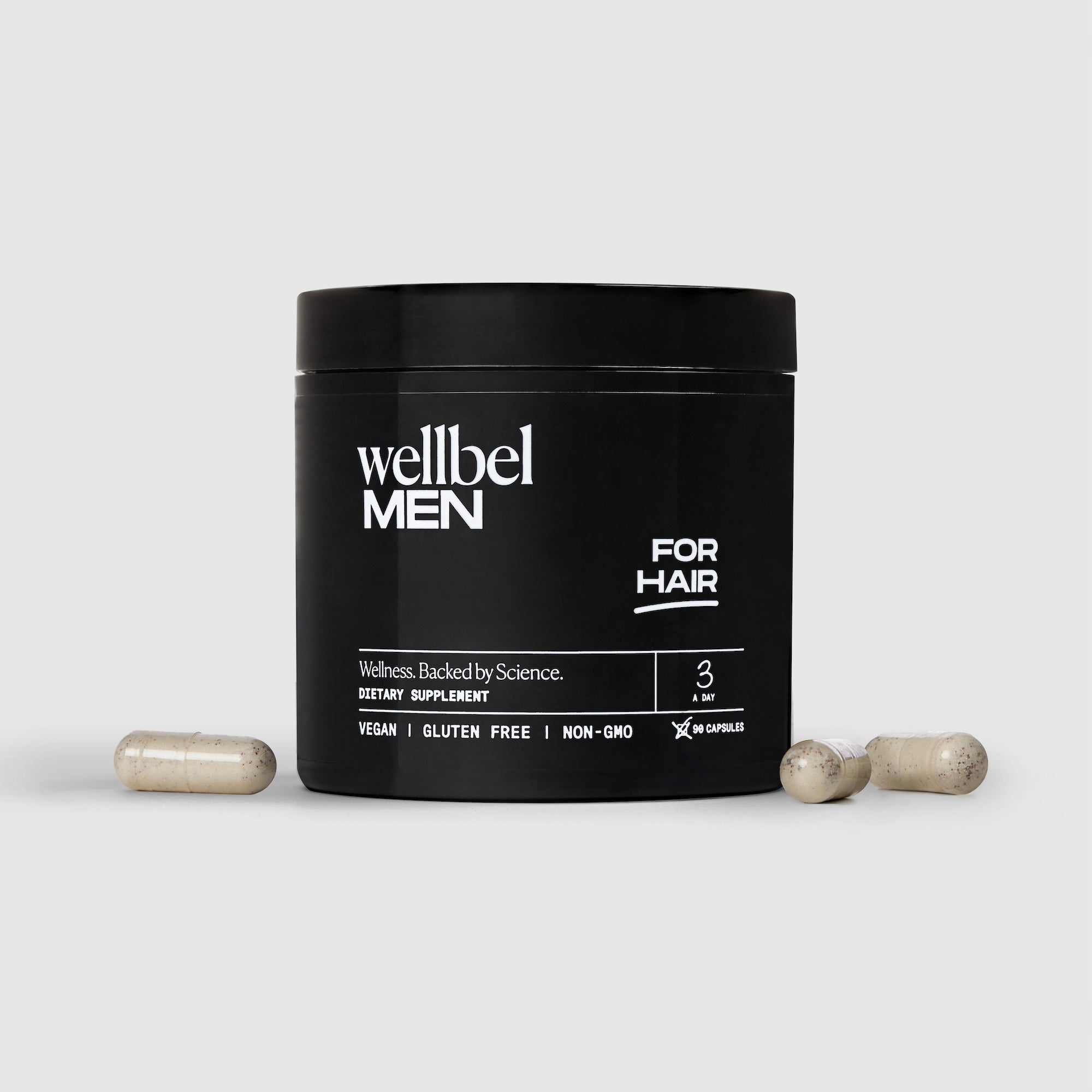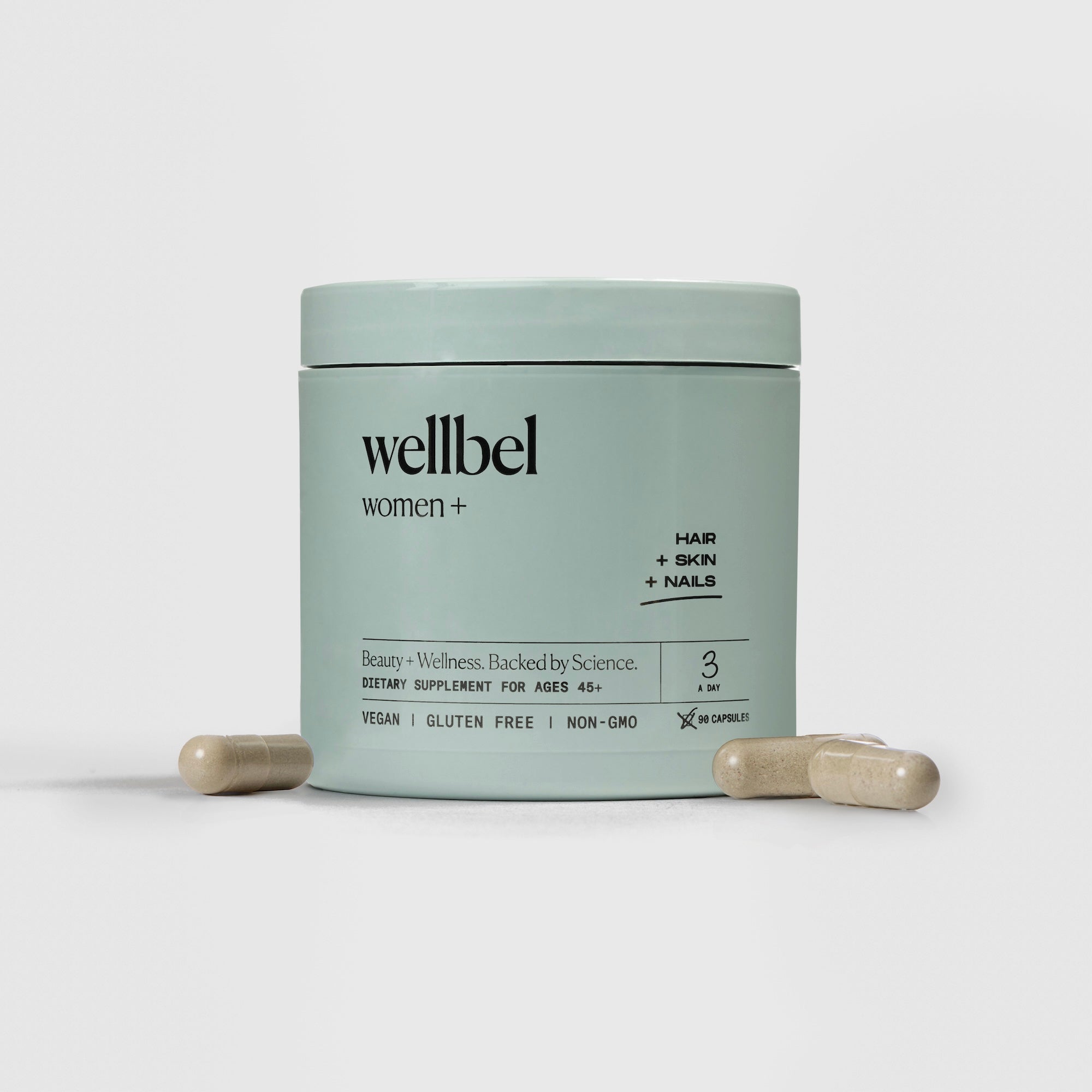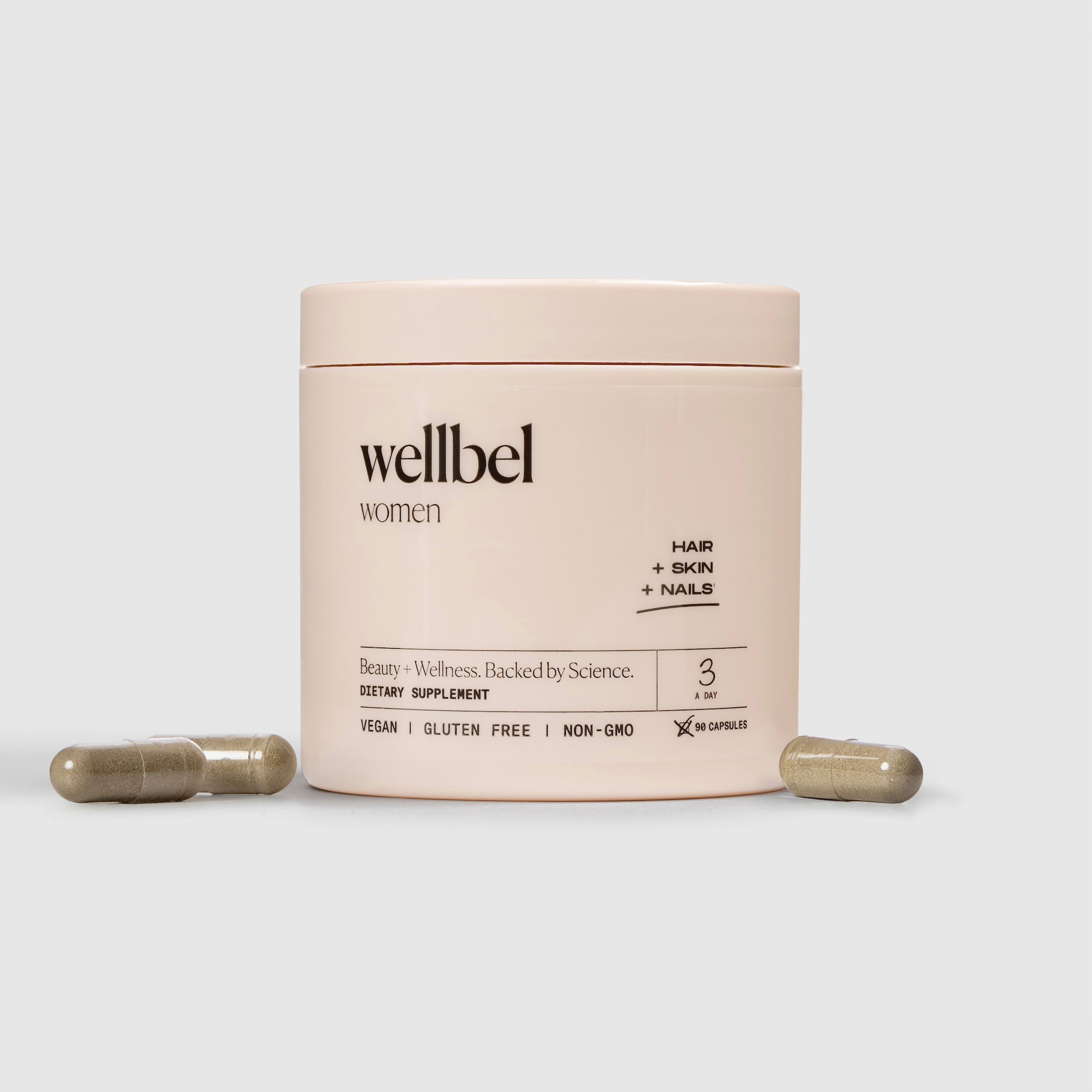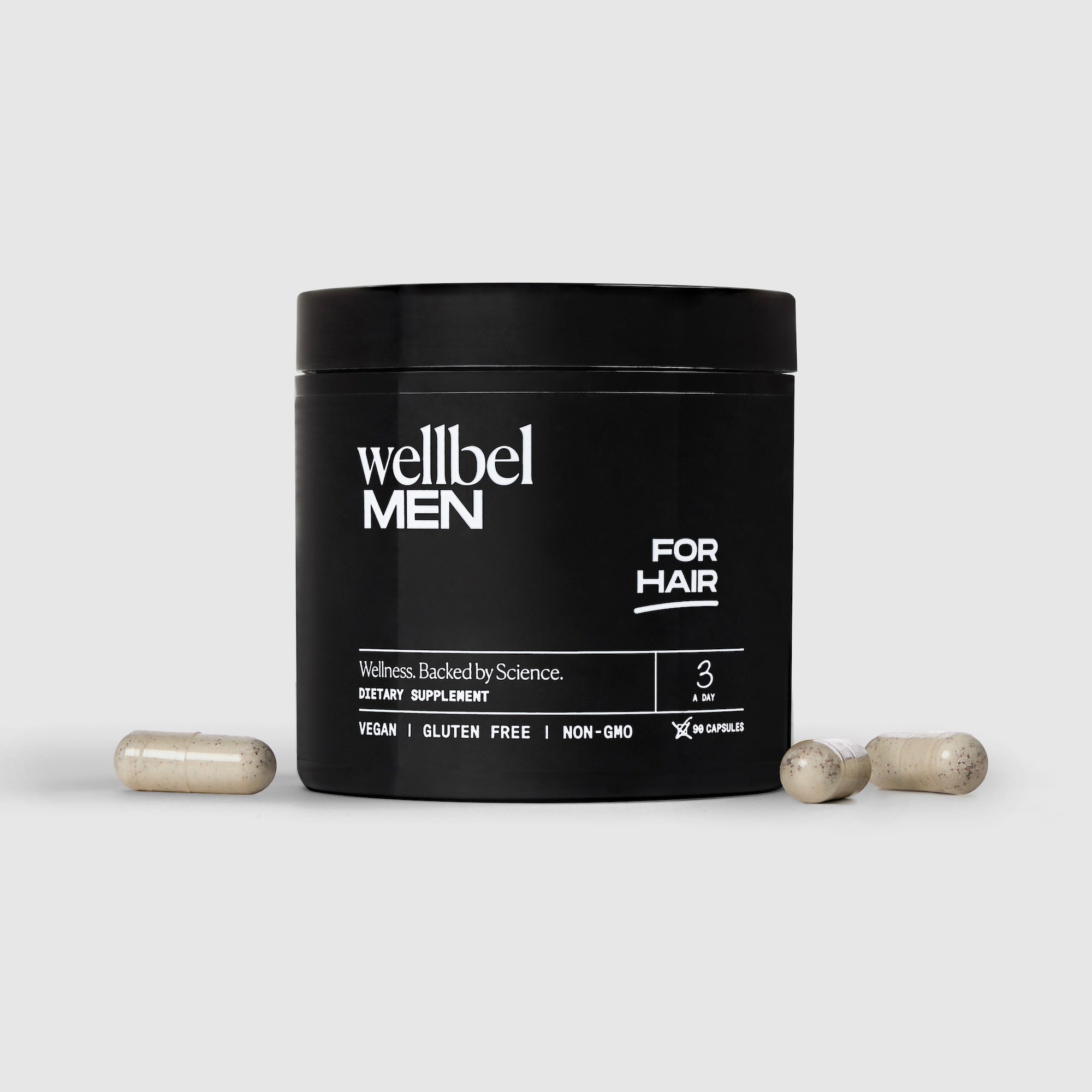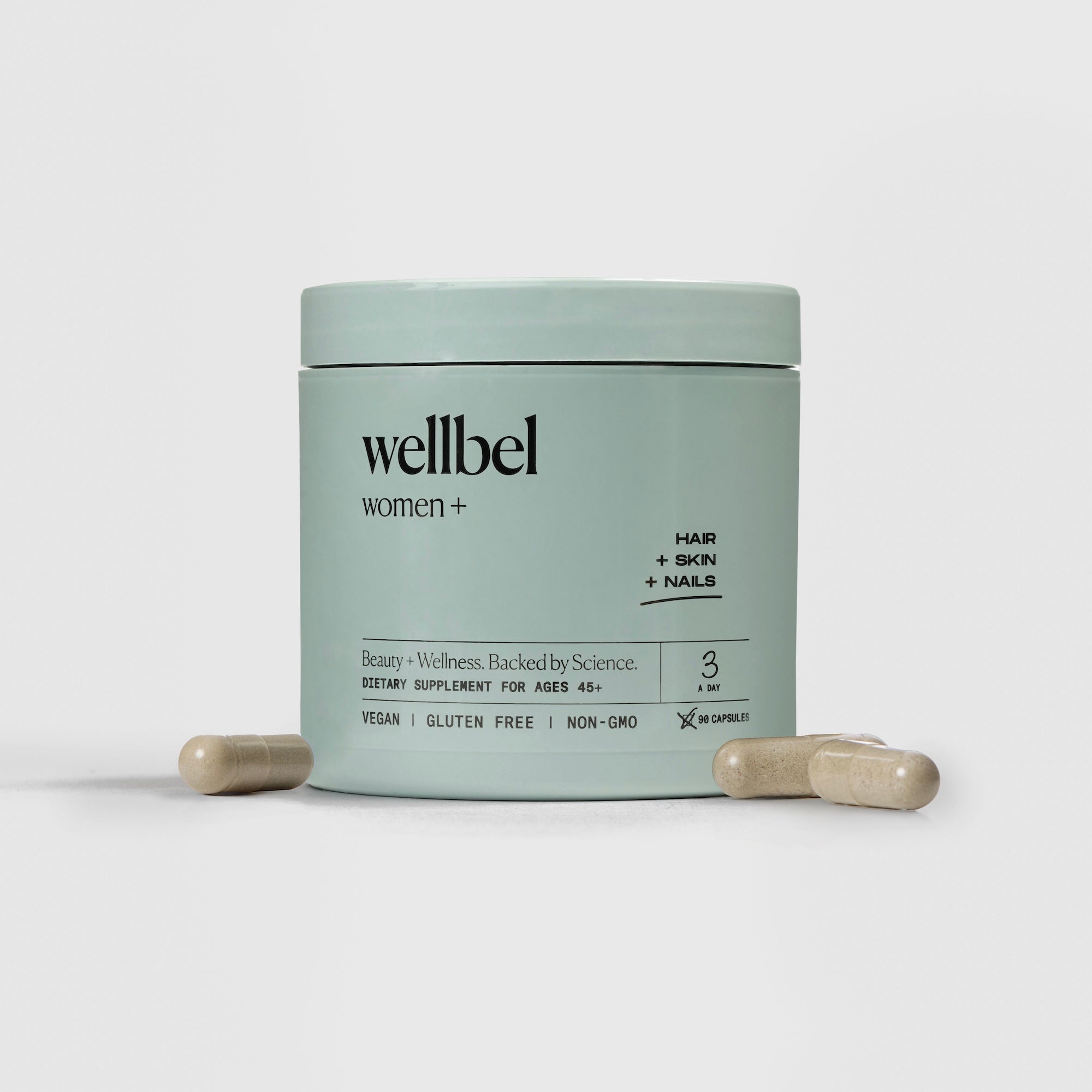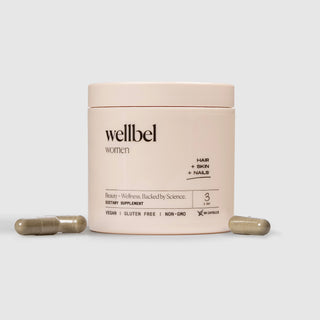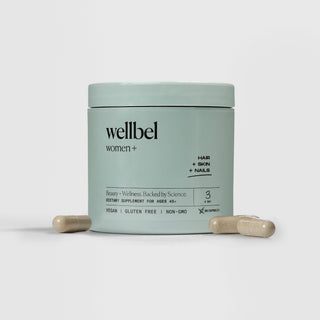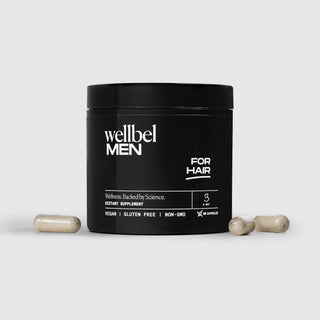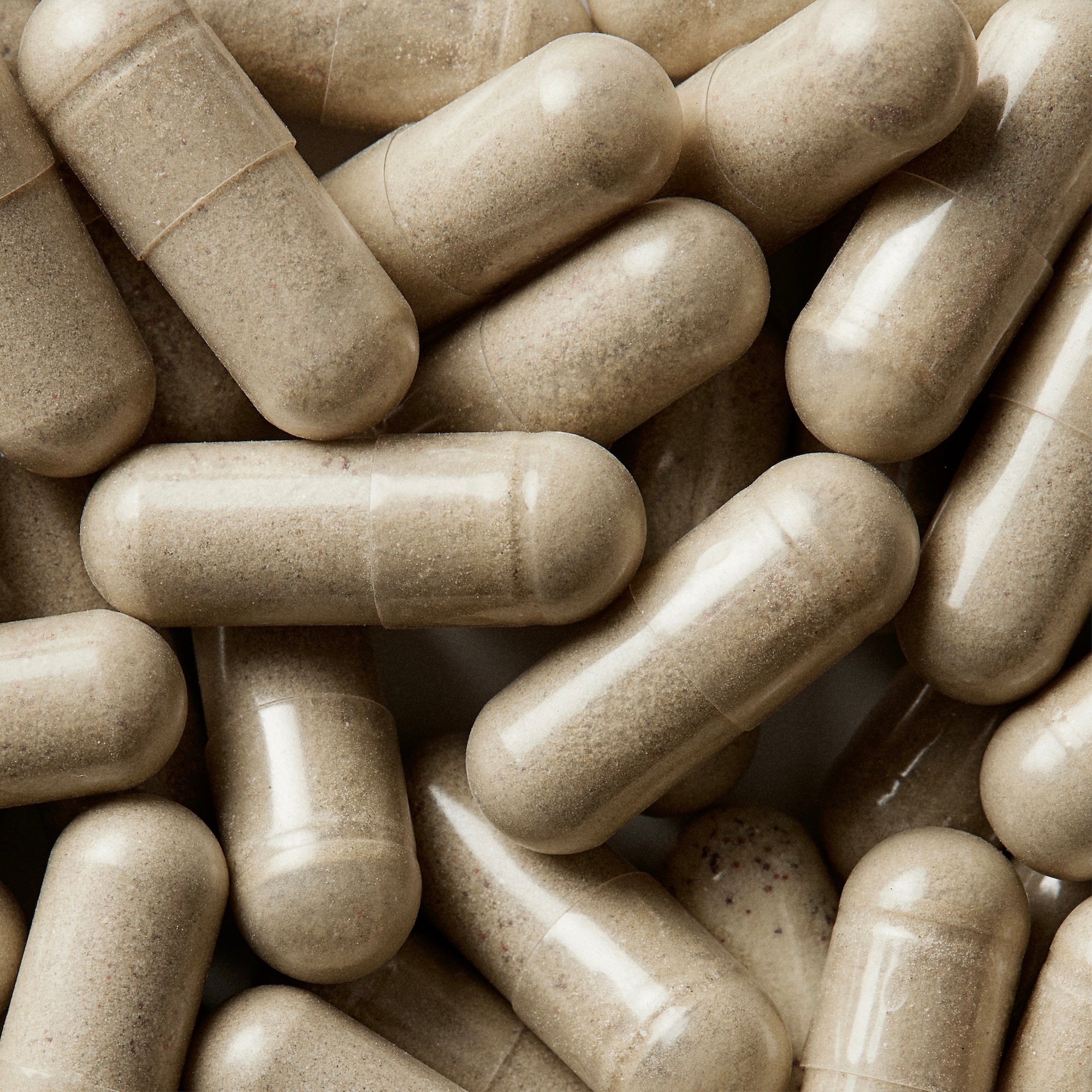Struggling with scalp issues and hair loss? Think zinc!
Zinc is a hardworking and vital mineral that your body needs for a number of essential processes, including supporting hair growth and fighting inflammation. While thinning hair can feel like an emotional journey, it’s also a biological one, and scientists for years have been working toward understanding why it happens and what you can do. Recently, we’ve really started to grasp the relationship between zinc deficiency and hair health.
In this post, we’ll break down zinc’s positive benefits on hair health, including zinc supplementation as well as topical zinc application.
Topical Zinc For Hair Health
We’ll work from the outside in, starting with topical application. If you’ve ever taken a close look at dandruff shampoo bottles, you’ll notice that they tout a key ingredient: zinc pyrithione. What are the benefits of zinc when it’s applied to the scalp?
Fights Dandruff
First and foremost, zinc pyrithione is an anti-fungal ingredient, meaning it can curb the growth of the yeast associated with dandruff. Yes, it’s true! There is fungus all over the human body and your hair is no exception. Some fungus is fine. Too much can lead to flaking and build up in the hair and damage to hair follicles.
Supports Scalp Health
Even if you’re not dealing with dandruff, topical zinc can help address product build up and inflammation of the scalp, setting the stage for healthy hair growth and vibrant, bouncy hair. That and relieving scalp itchiness! If you have dry scalp or struggle with dandruff, you know how huge that is.
Nutritional Zinc for Hair Health
But zinc works even harder inside the body. To promote hair growth, zinc plays a key role in fighting inflammation, building protein, and slowing hair follicle regression.
Improves Wound Healing
One of the most important functions of your immune system is wound healing. We don’t just mean for cuts or scratches — though it’s also good at that! We also mean any irritation or microscopic abrasions. When the skin is inflamed, the immune system rushes to the scene to help, powered by a number of nutrients, including zinc.
The body uses zinc to support protein synthesis and dna and rna production, helping your body with cell regeneration. With the right nutrients, your body is able to operate at its most efficient, leading to healthier skin, a stronger hair growth cycle, and reduced inflammation. And when it comes to promoting hair growth, the name of the game is decreasing inflammation.
Provides Body with Antioxidants
Part of the reason why zinc is so efficient at fighting inflammation is because of its natural antioxidant properties. ‘Antioxidant’ is one of those terms that you may hear all the time but not actually understand what it means.
Essentially, antioxidants defend the body from free radicals — unstable molecules that damage cells and can cause illness and aging. Free radicals enter the body through a variety of methods. Pollution, UV radiation, and drugs all cause oxidative stress in the body. This stress can have a negative impact on all of your bodily functions, including hair growth, hair thickness, and hair density. Zinc helps.
Supports Hair Regrowth
If you’re dealing with hair loss, you know how frustrating it can be. While it’s very normal, it can sometimes be hard to trace when and why it happens. There are many types of hair loss and the condition has been tied to a few nutritional deficiencies, including insufficient zinc.
Let’s talk about the conditions that relate to too little zinc.
Alopecia areata is basically a fancy term for balding, but balding is not the only form of hair loss. Many people experience telogen effluvium or sudden hair loss over the course of their lifetime. There’s evidence that zinc deficiencies correlate with telogen effluvium. So if you’re dealing with anagenetic hair loss (male pattern baldness and female pattern hair loss) or sudden hair loss brought on by stress or trauma, it’s entirely possible that you’re also dealing with a zinc deficiency that is exacerbating the problem.
While more research is still needed, one study of alopecia areata patients with low zinc serum levels showed promising results in hair growth thanks to supplementation. Two thirds of participants who took zinc supplementation for twelve weeks experienced positive outcomes on four points of hair regrowth.
How to Think Zinc When it Comes to Your Hair Care Routine
Hair health is a science. By understanding the pivotal role that essential nutrients and minerals play in maintaining healthy hair, particularly zinc, you can take steps toward nourishing your body and achieving luscious locks and vibrant growth.
Considering the potential risks of a zinc deficiency, like hair shedding, it’s important to bring zinc-rich foods into your diet. By improving your zinc absorption, you can take proactive steps towards nurturing your hair's vitality.
A diet rich in essential minerals, including zinc, can be a game-changer for your overall well-being and the strength of your hair. But while a balanced, healthy diet is always something to strive towards, we can’t always guarantee that we’re meeting our daily nutritional goals — we don’t always know if we’re getting enough zinc. That’s where a supplement can help.
We formulated Wellbel Men and Wellbel Women+ to specifically address zinc deficiencies, helping to boost immune health, healthy skin, testosterone production, and hair health. If you’ve been thinking about starting zinc supplements, we’d recommend a formula like Wellbel Men or Wellbel Women+, to approach hair loss from multiple angles, with multiple hardworking organic ingredients.
Sources:
Analysis of Serum Zinc and Copper Concentrations in Hair Loss | Annals of Dermatology
